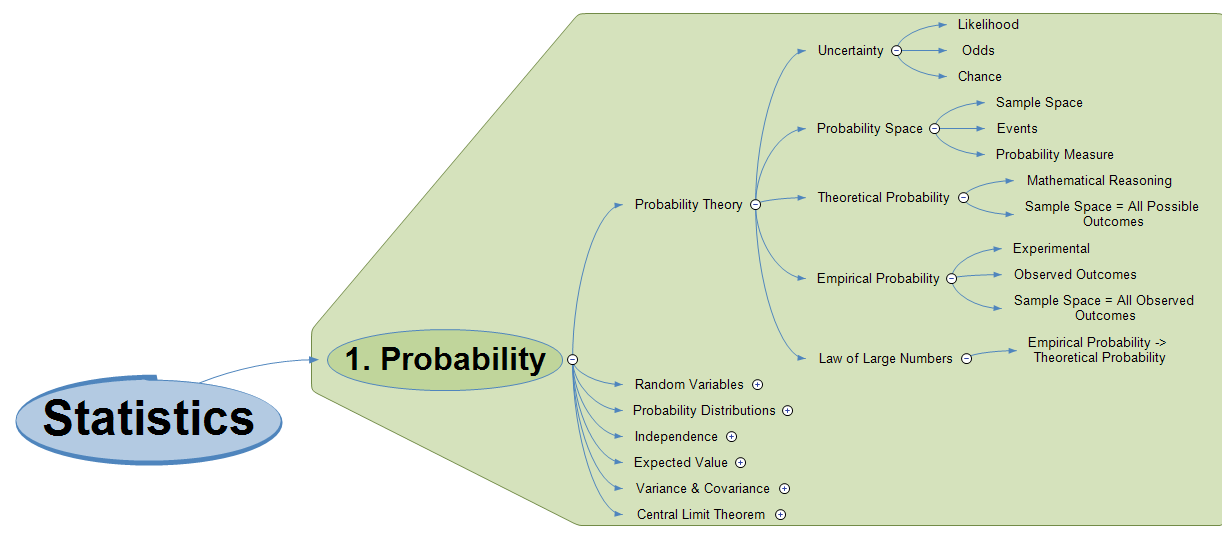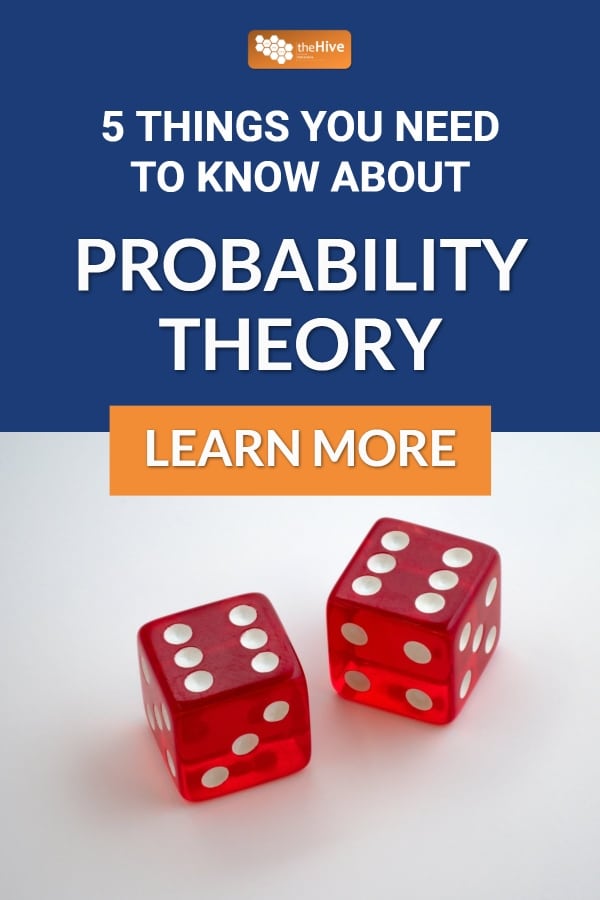Probability Distributions aren't some mythical creatures sprinkled with magic pixie dust. They may be a bit of a mystery to some, but once you dive a little deeper you realise that they're not so tough after all.
How can you get one just from flipping a coin? Where does it come from? And what can you do with it?
Well, the mathematics behind probability distributions may be difficult to understand, but how they come about is actually quite straight-forward.
Don't believe me?
Then stick around and I'll prove it to you - after I've tested your knowledge with a short, fun probability distribution quiz.
Get started here to test your knowledge:
Introduction to Probability Distributions
For a while now I've been researching all the little nooks and crannies of the statistics world to create a big picture of what it looks like when you pull it all together.
And this is what the part about Probability Distributions looks like:













So, how did you do in our little probability distribution quiz?
Well, our probability distribution quiz is actually one of the lessons in The Hive from our exclusive video course Statistics - The Big Picture, which is Open Access to start with (you don't need to register).
If you want to learn more about Probability Distributions and how they fit into the Big Picture of statistics, you can start from the beginning here:
VIDEO COURSE
Statistics:
The Big Picture
Free to try - no need to buy or register!
The 5 Most Awesome Things You Need to Know About Probability Distributions
I'm not going to go into great depth right now, because that's what the video course is for, but here are the 5 most awesome things you probably didn't know about probability distributions:
- 1There are 2 types of probability distribution; Discrete and Continuous
- 2Every discrete distribution is twinned with a continuous distribution
- 3Each distribution is described accurately by a mathematical equation
- 4You can use this equation to predict a mean and standard deviation
- 5These predictions can be compared with the actual mean and SD to determine whether the difference between your data and the theoretical distribution is significant










Pin it for later
Need to save this for later?
Pin it to your favourite board and you can get back to it when you're ready.
A Summary of Probability Distributions
Probability distributions might seem like a bit of a mystery, but really they aren't.
Just by flipping a few coins, it becomes simple to realise that some outcomes are much rarer than others. We all know that getting 10 Heads in a row is a rare event, but getting 5 Heads and 5 Tails (in no particular order) is just what we expect.
Plotting the outcomes gives us a way of identifying the common and the rarer results - the common results are always in the middle and the rarer results are always in the extremes.
Running lots of experiments wth lots of coins gives us a nice, neat graph that we call the Binomial Distribution, which is just one of many examples of probability distribution.
And these distributions are useful.
We can use them to compare what we expect to find with what we actually find, and use them to tell us how likely it is that our result is important to us.
Probability distributions might not be sexy, but I reckon they're as cool as the Jamaican bobsled team...
Probability Distributions - Do you know the basics? Test your knowledge (Quiz) #probability #binomial @chi2innovations @eelrekab
Statistics - The Big Picture
I hope you enjoyed this quiz lesson.
It's actually one of the lessons in The Hive from our exclusive video course Statistics - The Big Picture, where I take you through all the nooks and crannies of the statistics world.
This course is Open Access to start with (you don't need to register), and after you've gone so far through you'll need a Free Plan to continue.
As part of the course you'll get an Ultra-HD pdf of Statistics - The Big Picture to download and keep, and I'll share with you where you can also get your own poster to pin on your wall.
If you want to continue learning, you can start from the beginning here:
VIDEO COURSE
Statistics:
The Big Picture
Free to try - no need to buy or register!
I look forward to seeing you on the inside!
Share this lesson...

